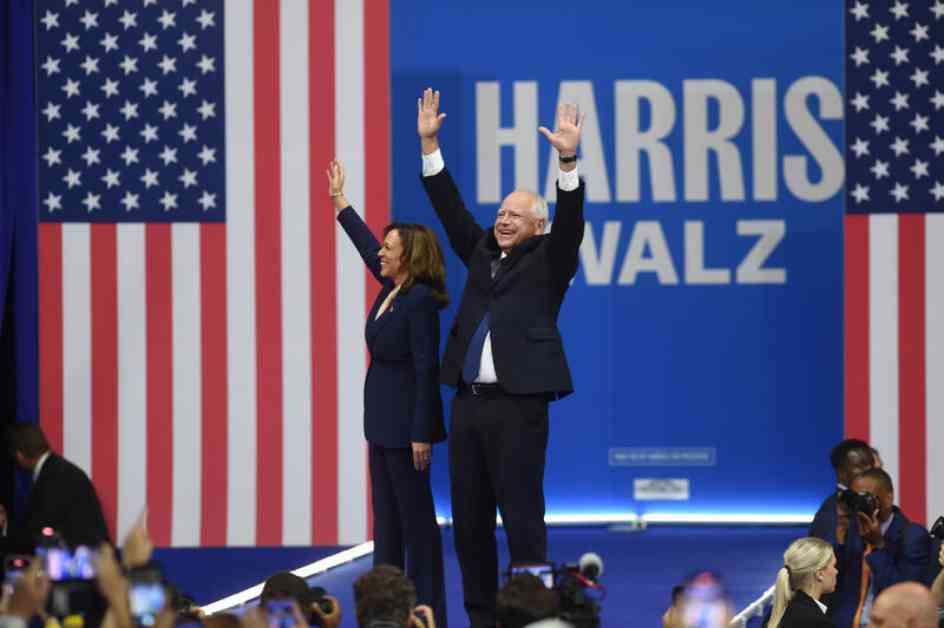Vice President Kamala Harris recently announced her running mate for the upcoming presidential campaign, Minnesota Governor Tim Walz. The partnership between Harris and Walz highlights their contrasting visions for public education, setting the stage for a heated debate on the future of the education system in the United States.
Harris-Walz Ticket: Emphasizing Support for Public Education
Harris and Walz’s approach to education centers on a strong belief in the importance of public schools and the vital role that teachers play in shaping the future of the nation. During their joint appearance in Philadelphia, Walz expressed his support for Harris’s view of education as a “ticket to the middle class.” This sentiment underscores their commitment to ensuring that all students have access to quality education opportunities that can lead to upward mobility and success.
As a former public school teacher himself, Walz brings a unique perspective to the table. Prior to entering politics, he spent a decade teaching social studies and coaching football at Mankato West High School in Minnesota. His firsthand experience in the classroom gives him valuable insights into the challenges facing educators and students alike. Walz’s dedication to fully funding public schools is evident in his efforts to secure a $2.2 billion increase in school funding in his state, despite facing opposition from Republicans.
Harris, on the other hand, has been a vocal advocate for public education throughout her political career. During her 2019 presidential campaign, she proposed a bold initiative to raise the average salaries of teachers by $13,500 over a 10-year period through a federal program. This ambitious plan reflects her recognition of the crucial role that teachers play in shaping the future of the country and the need to support them in their work.
Trump-Vance Ticket: Taking a Conspiratorial View of Education
In stark contrast to the Harris-Walz ticket, President Trump and his running mate, Vance, espouse a conspiratorial view of education that sees public schools as vehicles for indoctrinating children with left-wing ideologies. Trump has been vocal in his criticism of what he perceives as the infiltration of “radical left maniacs” in public schools, vowing to cut funding for programs that promote critical race theory, gender ideologies, and other content deemed objectionable.
Vance, echoing Trump’s rhetoric, has focused on combating what he calls the “continued CRT indoctrination” in schools and the influence of the “radical left’s culture war.” His stance on education aligns with Trump’s broader agenda of providing alternatives to what they disparagingly refer to as “government schools,” signaling a departure from the traditional support for public education.
While Trump and Vance’s approach to education may resonate with some segments of the population, their emphasis on ideological battles and conspiracy theories detracts from the crucial issues facing the education system. By demonizing teachers and promoting divisive narratives, they risk undermining the very foundation of public education and alienating educators who are dedicated to shaping the next generation of leaders.
Contrasting Views on Teachers and Education Policies
One of the key points of contention between the two tickets is their views on teachers and the policies needed to support them. Harris and Walz have consistently championed the contributions of teachers to society and advocated for measures to improve their working conditions and compensation. Harris’s proposal to increase teacher salaries and expand access to professional development opportunities reflects her commitment to elevating the teaching profession and attracting top talent to the field.
In contrast, Trump and Vance have taken a more combative approach, casting teachers as purveyors of anti-American ideologies and advocating for measures to restrict their influence in schools. Trump’s pledge to create a new credentialing body to certify teachers who embrace patriotic values reflects his desire to reshape the education system in line with his political agenda, potentially undermining the autonomy and professionalism of educators.
The differences in approach to teachers and education policies underscore the broader ideological divide between the two tickets. While Harris and Walz prioritize support for public education and teacher empowerment, Trump and Vance prioritize ideological battles and political agendas that risk undermining the integrity of the education system.
In the coming months, as the presidential campaign heats up, the contrasting visions of public education presented by the Harris-Walz and Trump-Vance tickets will be front and center in the national debate. The stakes are high, as the future of the education system hangs in the balance, with far-reaching implications for students, teachers, and the nation as a whole.




















